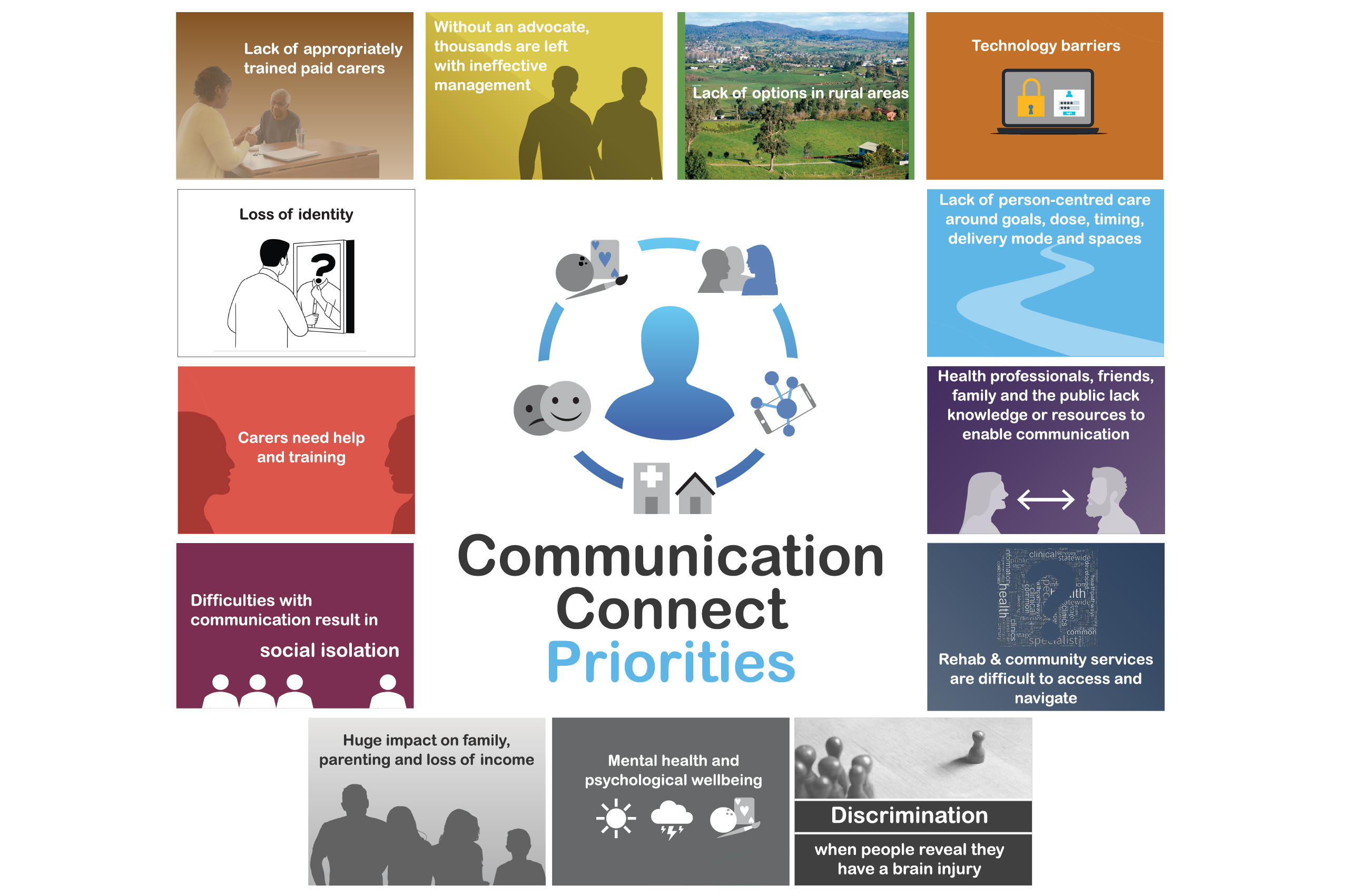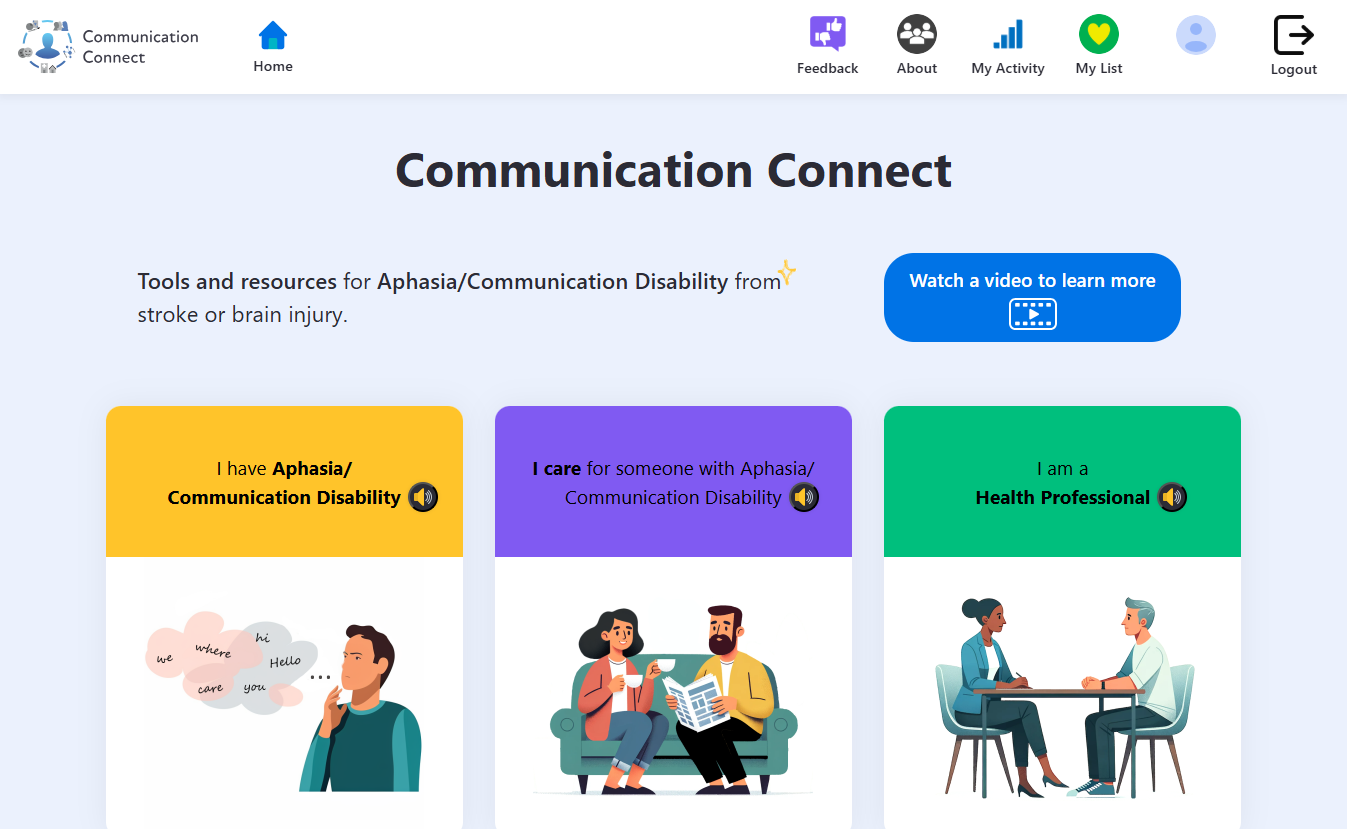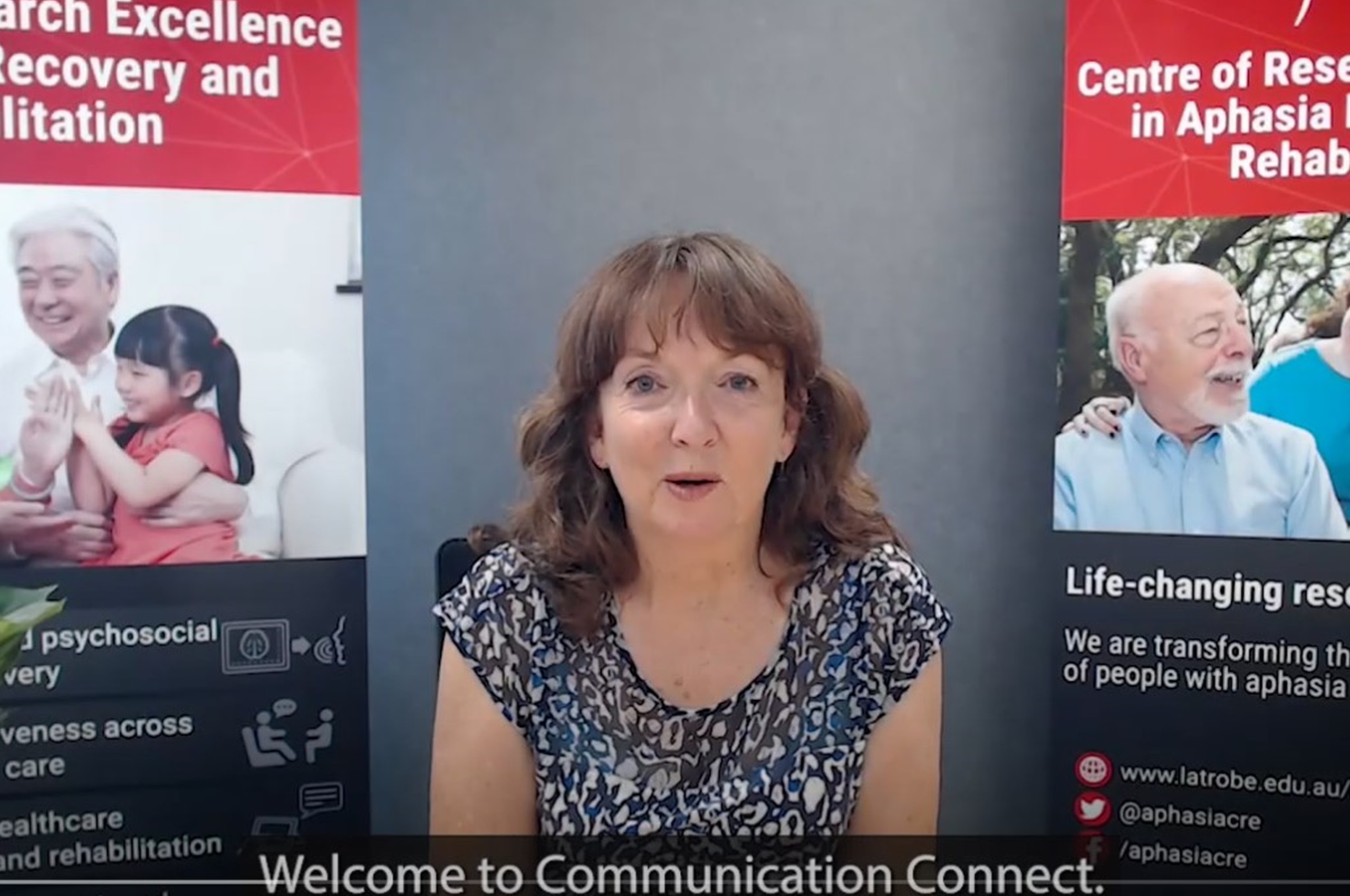Communication Connect

Improving long term communication and mental health outcomes following stroke and brain injury - an NHMRC Ideas Grant
Chief Investigators: Prof Miranda Rose (Director), Prof Leanne Togher, Prof David Copland, Prof Ian Kneebone, Prof Damminda Alakahoon, A/Prof Emma Power, Dr Anne Hill, Dr Dana Wong, Prof Tim Usherwood, Dr Brooke Ryan.
Postdoctoral Fellows: Dr John Pierce -Project Officer and Dr Achini Adikari
PhD Candidates: Nelson Hernandez and Nuwan Pallewela
The problem:
- Approximately 250,000 Australians live with communication disabilities from stroke and traumatic brain injury
- This affects every aspect of daily life, impacting mental health, employment, social participation and family functioning.
- Rehabilitation services and long term community care do not currently meet the needs of this specialised group
- Evidence for speech pathology, psychology, telehealth has not been integrated and translated
Our project:
Communication Connect is a digital platform that has been co-designed with people living with communication disability, carers and clinicians. Communication Connect is a comprehensive, multicomponent, technology-enabled program of care providing resources, support and self-management. It is underpinned by artificial intelligence-enabled data management and resources.
Method:
Phase One (Complete)
The aim of phase one was to understand the experiences of people with communication disability from stroke and traumatic brain injury, their carers and health professionals working with them. We wanted to identify and prioritise issues and gaps concerning short- and long-term community needs after discharge from rehabilitation services.
In total, phase one included:
8 3 20
People living with Carers Health Professionals
communication disability .
Through the focus groups, interviews and prioritisation workshops, the challenges below were judged as the most important (no particular order). These 13 challenges guided the design and development of the Communication Connect platform.
Phase Two
Communication Connect used a specific co-design approach, Experience Based Co-Design, to design possible solutions. Through cycles of Experience Based Co-Design workshops, a sample of staff and consumers from phase one guided development of the Communication Connect technology solution and testing of emerging prototypes.
Communication Connect is a comprehensive, accessible online platform that offers a library of digital tools and support resources. Resources cover mood, technology support, treatment options, communication training, carer support, and more. Many of the resources were custom made for the project, like our aphasia-friendly mood tracking app, our services coordinator, and the carer education program. We also link to hundreds of existing resources.
.
.
Phase Three
We are now testing the first prototype of Communication Connect at four Australian health services. Feasibility, acceptability and preliminary efficacy will be assessed. The decision about a future scaled up trial will be made on these results.



